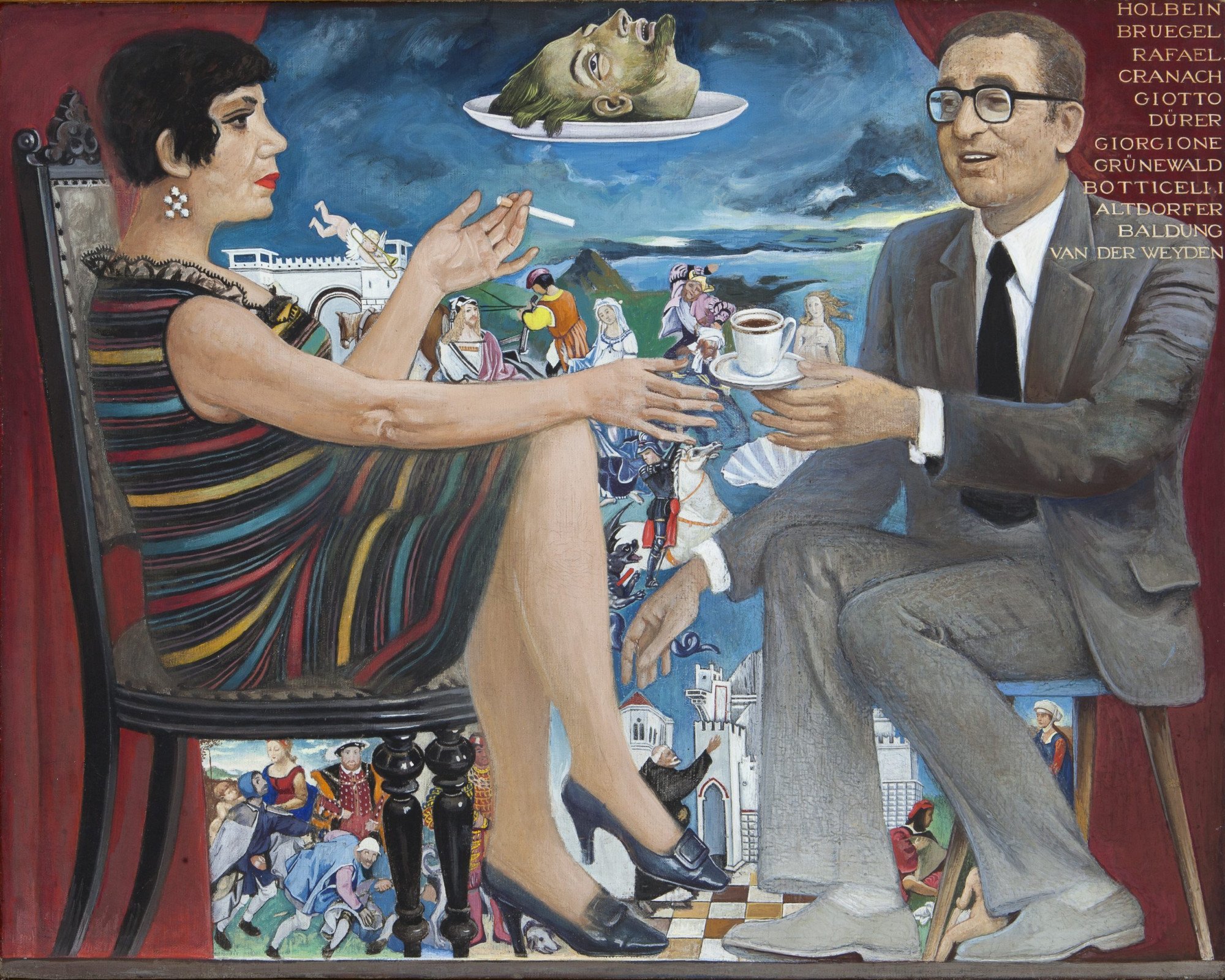Valentina Rusu-Ciobanu - A Century on Earth
Valentina Rusu-Ciobanu, Quotations from Art History, 1978
Living just past her 100th birthday, Bessarabian artist Valentina Rusu-Ciobanu ((1920 - 2021, Moldova) had seen the world twist and turn and change for a full century. Even her country changed three times in her lifetime as she continued living in her native town of Chișinău - first Romania, then the USSR, then the Republic of Moldova.
Yet she remained unchanged by politics, conforming solely to her own free spirit and artistic exploration. Her conclusion after a century on earth? “People are all the same,” she said in an interview a month shy of her 100th birthday.
Valnetina Rusu-Ciobanu, Portrait of Aureliu Busuioc, (writer and playwright), 1958
alentina Rusu-Ciobanu, Portrait of Aureliu Busuioc (writer and playwright), 1966
A brilliant portraitist, Rusu-Ciobanu captured the essence of her sitters with great sensitivity, starting with academic painting and finding her unique artistic voice in the 1960s. It is fascinating to see the progression of her style in the two portraits of the writer and playwright Aureliu Busuioc (above) rendered in 1958 and 1966 respectively.
Valentina Rusu-Ciobanu, Portrait of Vera Malev (Moldovan writer), 1972
Influenced by surrealism, expressionism and naive art, Ruso-Ciobanu once said in an interview that experiments with perspective “helped her to unlock the character of each sitter”. Stylistically, her artworks were daring for the restrictive Soviet regime yet perhaps due to their gentle humour and apolitical topics she was spared from government censorship (if not government pressure) and was even commissioned portraits of Moldovan cultural figures.
Valentina Rusu-Ciobanu, Portrait of Dumitru Fusu, (actor), 1964
Valentina Rusu-Ciobanu, Portrait of Igor Crețu (poet and translator), 1971
An extraordinary woman, Rusu-Ciobanu had a thirst for knowledge, teaching herself English in order to read contraband books not translated into Romanian or Russian. Her art - such as Quotations from Art History (first image above) and Breakfast (below, featuring an Italianate landscape) often references history’s great artistic achievements.
Valentina Rusu-Ciobanu, Breakfast, 1979-80, National Art Museum, Chișină
In Breakfast (above), the woman lost in reverie next to an exquisitely set table placed high above an Italianesque landscape is Rusu-Ciobanu’s sister. The finished painting turned out differently than Rusu-Ciobanu planned, making it one of her favourite artworks because of the joy brought by the element of surprise in the creative process.
Valentina Rusu-Ciobanu, Moon Rover, 1970
Born shortly before the invention of television and living long past the time when she watched on television the landing of the first robotic rover on the moon (the event beautifully captured in her Moon Rover, above) and well into the age of the Internet, Rusu-Ciobanu saw two world wars; three changes in governments, language, and ideology; and a technological revolution that transformed the world. She survived it all, remaining steadfast to her artistic expression and becoming a highly decorated and widely exhibited artist during her lifetime.








